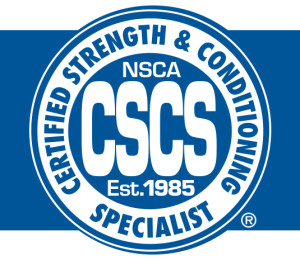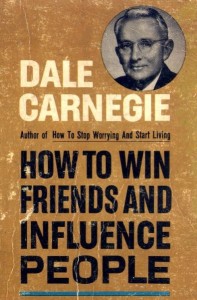 Hiring a coach isn’t an easy process.
Hiring a coach isn’t an easy process.
It’s not as easy as poking around on the Internet for 20-30 minutes, looking up a few websites, and plopping down some cash for training.
Instead, finding a coach should be a (somewhat) slow and painstaking process.
You are, after all, trusting this person with your single-most valuable commodity:
Your body.
I’ve used coaches a handful of times myself, in various avenues of my life.
In fact, hiring a coach is one of the smartest things we can do. Using a coach that knows their stuff, and jives with our philosophy, is an almost guaranteed way to fast-track our progress.
If you are interested in finding a coach to help you achieve your goals, use this article as a guide to help you get started.
Phase #1 – Initial Interest
This first phase in finding a coach is what I call the “Initial Interest” phase.
At this point in time you’ve come to the realization that you want or need a coach, so your “looking” moves from a passive interest to a more active interest.
At this point in time, I’d recommend finding one to three potential coaches that you could work with.
If you’re a bit on the OCD-side, or like to compare and contrast, this is the ideal time to start a “Pros and Cons” list so you can get a better feel for what each candidate brings to the table.
But then what?
Now it’s time to dig in and start doing your homework. You need to find out what each coach is all about, and what they have to offer you.
Here are a few things that I’d recommend you look for in a coach:
#1 – Educational background and certifications
It’s important to start with the basics when looking for a coach.
For example, does this person have a background in exercise science, exercise physiology or kinesiology?
Or is Broscience the extent of their formal education?
By going through 4-5 years of schooling on these topics, someone walking out with a degree tends to have at least a rudimentary level of understanding of key topics like biomechanics, physiology, and the like.
You might be shocked how many so-called “trainers” these days have absolutely ZERO scientific background in training.
They’ve never read a text book, attended a course, or watched a DVD.
Instead, they lean on various gurus and pseudoscience to give them their science background.
Now keep in mind a degree in an exercise-related field doesn’t mean this person is world-class in any of these areas (let alone actually training people!), but they should at least have a foundation.
 Taking that a step further is a professional certification.
Taking that a step further is a professional certification.
Just like an exercise-related degree doesn’t make you a world-class coach, a certification doesn’t mean you know anything about training clients.
But, again, it’s a minimum standard.
It shows you’ve done something to get started towards being a professional.
If you’re looking for a coach, I’d recommend looking for one of three certifying bodies:
- The National Strength and Conditioning Association (NSCA) CPT or CSCS,
- The International Sports Sciences Association (ISSA) personal trainer or performance enhancement specialist certification, or
- The American Council of Exercise (ACE) certification (with a much-improved textbook and educational process).
An exercise-science related degree and a certification are the starting point, so what comes next?
Coaching experience, of course!
#2 – Coaching background and personal experience
As much as I want to work with someone that has achieve a minimum standard when it comes to certifications and schooling, at this point in my career I’m more focused on real-world, practical results than anything else.
- Does this person have a proven (and repeatable) track record?
- Have they gotten consistent results?
- Do they have clients and athletes who will sing their praises via testimonials?
And this is where you have to really do your homework, too, because I feel as though more and more people feel the need to embellish their experience in an effort to get ahead.
Regardless, find out where your potential coach(es) have worked, and who they’ve trained over the years.
#3 – Their core focus and philosophy
Once a coach has made it this far, it’s time to get down to brass tax.
If you’re interested in possibly hiring someone to coach you, ask yourself this one simple question:
Can this person help me achieve my goals?
For example let’s say you wanted to hire me, but your goal was to get to 4% body fat for a bodybuilding or figure competition.
I think I’m a pretty darn good coach, but getting to ridiculously low body-fat levels and looking good on stage aren’t my forte.
However, if your goal is to move and feel great, or get stronger, or to dominate people on the field or court, I think I would be a great fit.
The point here is you need to learn as much about your potential coach as possible.
You need to find someone who is a specialist in your area of need.
And perhaps most importantly, you need to have congruency.
You need to ensure that the goals, values and philosophies or your potential coach matches yours.
Last but not least, there’s one last thing I’d recommend when looking to hire a coach…
#4 – Is this their job and livelihood?
I remember a few years back I was part of a business networking group, and one guy was selling me hard on his home audio and visual packages.
While I was obviously intrigued (any time the Y-Chromosome hears about technology, it’s immediately activated), I told him I would pass.
This guy was all sizzle and no steak.
He drove the BMW, sported the Dolce and Gabbana glasses, rocked the designer suit, the works.
I don’t know what it was, but something about him just felt off. I don’t use the term often, but the words “douche bag” immediately come to mind.
Fast forward a few weeks and I see the same guy out at a bar. Now he’s in a designer tee, and sporting a sleeve full of tats on both arms.
We happened to chat a bit and he told me how he “did some training on the side for extra cash.”
Oh really?
I don’t know about you but if I’m going to hire a coach, I want someone who is exceptionally good at what they do.
I don’t want someone who does this part-time.
I don’t want someone who uses this as a back-up career.
I want someone who has sold out to their profession, their career, their job, to help people see success and get results.
I don’t know if it’s the low barrier of entry or what, but it seems as though anyone can label themselves a “trainer” these days.
And it pisses me off.
I take our profession seriously. I want the people I work with to get great results.
To feel as though they are getting world-class treatment all the time.
So if you’re looking for a coach, make sure to find someone who is doing this because they’re passionate about helping people – not because they simply want to make a few bucks on the side.
Now that you’ve done your homework, it’s time to whittle down your list and start the interview process. Let’s get into that now.
Phase #2 – The Interview Process
The interview process is where your hard work as a potential client pays off.
A coach that is worth their salt will enjoy talking to you about your needs and goals.
They’ll be cool, calm and confident when you ask about their core philosophies, or how they expect to help you.
Regardless, here are a few key questions that you should ask a potential coach (in no particular order):
What are your core philosophies?
If you did your homework you should already have an idea of this coach’s philosophy, but it never hurts to have them explain it to you in their own words.
For example, you could read everything on my website from bio to articles, and not have a great idea of what I do for a living.
But if I had to sum it up for you, it might sound something like this:
“I train clients and athletes to move more efficiently, so that they can be stronger in the gym, and more explosive and resilient on the court or field.”
The key here is to find out of this person’s core philosophies jive with your own.
If you want fat loss and this person coaches powerlifters, it’s probably not a great fit.
What can I expect out of working with you in regards to __________?
(_____ could be time, money, whatever)
This one is really important, because I find the only time I have issues with clients or athletes these days is when there aren’t clear expectations set-up up front.
 Let’s talk about money first, because that’s typically on the top of people’s minds:
Let’s talk about money first, because that’s typically on the top of people’s minds:
- How much will you pay them? (total, monthly, etc.)
- How often will you pay them? (paid in full, monthly, weekly, etc.)
- How will you pay them? (i.e. cash, check, monthly auto-pay, etc.)
- Is there a refund or cancellation policy?
Money can be a big hang-up for a lot of people, so make sure you get all your questions answered up front.
Another big issue is time. Here are some important questions to ask in this regard:
- How long are your sessions?
- How/when do I schedule?
In my world, I don’t schedule my sessions based on time.
Yes, you have a time you show up to the gym, but we finish your “session” when the work is done.
If you’re a pro athlete and we’re in a big training phase, that could be two hours.
Or if you show up and your BioForce is telling me you’re overtrained, or not prepared to train, it could be 20-30 minutes.
The bottom line is in my world, we train until we get the job done.
However, I know I’m not the norm. Many coaches/trainers live by the clock, so it’s important for both of you to know this up front and plan accordingly.
Last but not least, I’d ask process related questions. Here’s the big one that comes to mind:
Can you give me a general idea of what we will be focusing on, or how you can help me?
This is where you can get a firm grasp on this coach’s idea of vision for you. While I wouldn’t expect them to give the farm away for free, a basic vision or outline is important.
Here’s a practical example: Bill and I were interviewing potential PR people to help us out at IFAST, and we had two potential candidates come in.
One gal was frosty, didn’t smile, and gave us no real idea of what she was going to do for us, or how she was going to help.
The other gal was very friendly, engaging, and most importantly, gave us immediate feedback on what she was going to do to help us be successful.
Needless to say, the decision wasn’t hard to make!
I don’t expect someone to give me all the goods during an initial consult, but if your potential coach is good, they have no issue going over the basics to help put your mind at ease.
The bottom line is if your coach doesn’t have at least a basic vision of how he/she is going to get you from A-to-B, then he/she probably won’t be a good fit for you.
What will our degree of communication be like (for online clients)?
If you’re looking at hiring an online coach, I think this is a critical question to ask.
With my online clients, we may start out communicating quite often, bouncing a couple of e-mails back and forth each week.
But once you’re comfortable, we tend to dial things back and e-mail once per week.
A while back I actually lost an online client, simply because this person didn’t want a coach – they wanted an online mentor.
They wanted someone to respond to numerous e-mails, on all sorts of topics, and they wanted immediate responses.
So this, again, is where clear expectations come into play.
If clear expectations are set-up from the start, then no one can (or should) complain down the line.
Are there expectations outside of the typical training session (i.e. for fat loss clients)?
Last but not least, it’s helpful to ask the coach what expectations they have for you outside of the standard training session.
If you’re using a fat loss coach, what things do they expect you to do outside of the training session (such as extra cardio, diet, etc.), to help you see success?
I know I’m beating a dead-horse, but this again is all about expectations.
If your coach gets great results training clients 2-3 times per week, but expects you to do 8-10 extra cardio sessions on your own, then you need to know that up front.
And if you don’t? Well, that might be a problem.
So the takeaway message here is simple: Find someone who has the same core philosophy as you, and that is ready, willing and able to answers all your questions.
Now we’re down to our final step – making a decision and hiring a coach!
Phase #3 – Making a Decision
Now that you’re ready to hire a potential coach, here are a few things I think will help solidify the final decision for you.
Do you Like, Trust and Respect this person?
 In his legendary book, How to Win Friends and Influence People, Dale Carnegie stated that when it came time to make a decision, he asked himself three simple questions:
In his legendary book, How to Win Friends and Influence People, Dale Carnegie stated that when it came time to make a decision, he asked himself three simple questions:
- Do I like this person?
- Do I trust this person?
- Do I respect this person?
If the answer was “No” to any of those questions, he didn’t do business with him – regardless of how profitable it could’ve been for him!
This is really important, and something I do before I ever hire or work with someone. If I don’t like, trust and respect them, then it’s not going to work.
Don’t think about COST – Think about VALUE
Almost everyone in life (unless you’re an oil sheik or just ridiculously wealthy) has sticker shock at some point in time.
That initial feeling is your reaction to the cost of an item.
On the other hand, you need to think instead about the value of something. Something that may appear to cost a lot up front, may be a great long-term value.
This is really important for me. I’m not willing to throw money away, but I’m also realizing more and more as I get older that I want to invest in things that are of great value.
Purchases such as seminars, coaching, or things that will fast track my progress as a coach, business person, writer, or speaker are all things I’m willing to invest money in.
It’s up to you to determine when the cost of something outweighs it’s value, but hiring a coach can be a great value if you work with the right person.
Go with your “Gut”
When in doubt, go with your gut. Your instincts.
The only times I’ve really been burned when hiring an intern, or making a major decision in life, was when something felt “off” and I ignored it.
If you don’t like, trust and/or respect this person, then this is a fail safe to make sure that you don’t hire them.
On the other hand if you DO like, trust and respect them, and your gut tells them it’s the right move, then by all means, hire them and get going!
Summary
As I stated up front, hiring a coach is one of the best things you can do to fast-track your progress in any area of your life.
I hope this article has been of value, and feel free to refer back to it any time you are interested in hiring a coach!
All the best
MR
P.S. – If you are ever interested in my professional coaching services, you can find out more about them here:
Robertson Training Systems Online Coaching
